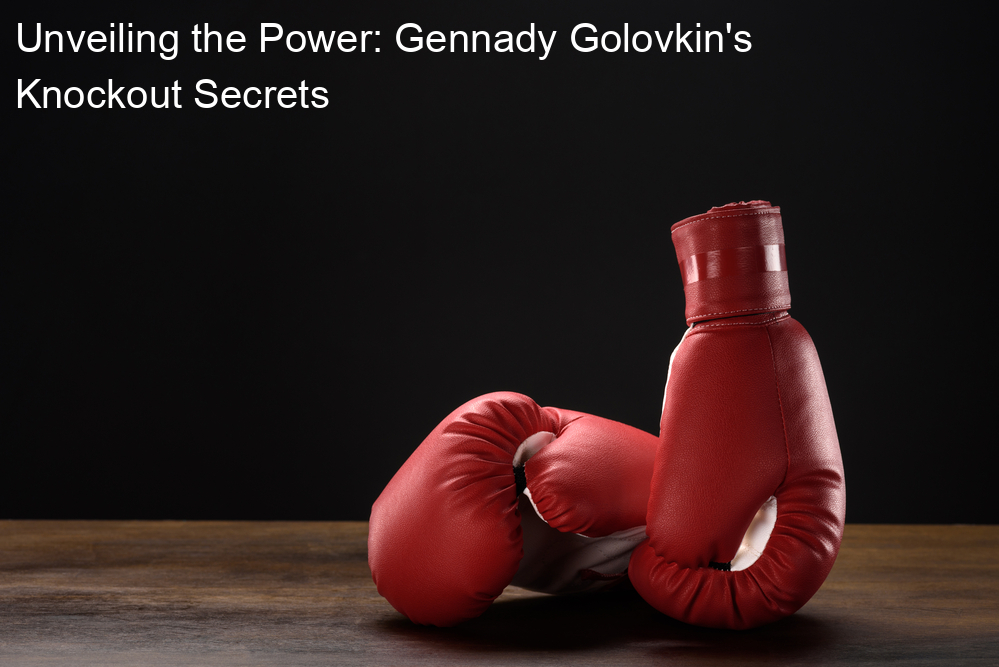
Introduction to Boxing Psychology
Boxing is not just about physical strength and agility, it’s also about the power of the mind. The psychology behind boxing plays a crucial role in a boxer’s performance in the ring. Let’s explore this fascinating aspect of the sport.
- Understanding the importance of mental training in boxing
- How the boxing mental game contributes to success
Mental training is as important as physical training in boxing. It’s not just about throwing punches, it’s also about thinking strategically and staying focused under pressure. Boxers need to train their minds to stay calm, focused, and confident. They need to visualize their moves, anticipate their opponent’s actions, and react quickly and accurately. This mental toughness and resilience can make the difference between winning and losing a match.
The mental game in boxing is crucial for success. A boxer’s mindset can greatly influence their performance in the ring. A positive and confident mindset can help a boxer stay focused, make quick decisions, and handle pressure effectively. On the other hand, a negative or doubtful mindset can hinder performance and lead to mistakes. Successful boxers understand the power of their minds and use it to their advantage. They train their minds to be strong, resilient, and adaptable, just like their bodies.
Boxing psychology is a fascinating and complex field. It involves understanding the mind-body connection, developing mental toughness and resilience, and using mental strategies to enhance performance. By understanding and harnessing the power of the mind, boxers can improve their performance and increase their chances of success in the ring.
The Psychology of Successful Boxers
Understanding the psychology of successful boxers can provide valuable insights into the mental strength required to excel in this demanding sport. Let’s delve into the key traits that set successful boxers apart.
Key Traits of Successful Boxers
There are several traits that successful boxers commonly possess. Here are the top three:
- Resilience
- Focus
- Confidence
Boxing is a physically demanding sport that requires a high level of resilience. Successful boxers are those who can take a hit and keep moving forward. They understand that setbacks are a part of the journey and use them as opportunities to learn and grow. As the legendary boxer, Muhammad Ali once said, “Only a man who knows what it is like to be defeated can reach down to the bottom of his soul and come up with the extra ounce of power it takes to win when the match is even.”
Boxing is as much a mental game as it is a physical one. Successful boxers are able to maintain a high level of focus throughout their matches. They are able to block out distractions and stay present in the moment, concentrating on their opponent’s moves and strategizing their next steps. This level of focus is often what separates the good boxers from the great ones.
Confidence is key in boxing. Successful boxers believe in their abilities and trust in their training. This confidence allows them to step into the ring with the belief that they can win, which can often be a self-fulfilling prophecy. As the famous saying goes, “Whether you think you can, or you think you can’t–you’re right.”
In conclusion, resilience, focus, and confidence are three key traits that successful boxers possess. These traits not only contribute to their success in the ring but also help them navigate the challenges and pressures that come with the sport.
Case Study: Muhammad Ali’s Mental Strength
One of the most iconic figures in boxing history, Muhammad Ali, was not just known for his physical prowess in the ring, but also for his mental strength. Let’s delve into the mental strategies he employed and how his psychological aspects contributed to his boxing success.
- Ali’s mental strategies in boxing
- How his psychological aspects contributed to his boxing success
Ali was a master of mental warfare in the boxing ring. He was known for his unique strategy of ‘rope-a-dope’, where he would lean on the ropes and let his opponent throw punches, tiring them out. This strategy required immense mental strength and patience, as Ali had to withstand the initial onslaught and wait for the right moment to strike back.
Another key strategy was his use of psychological warfare before the fight. He would often taunt his opponents, making bold predictions about the outcome of the fight. This not only boosted his own confidence but also created doubt in the minds of his opponents.
Ali’s mental strength was a significant factor in his success. His unwavering self-belief, even in the face of adversity, set him apart from other boxers. He once famously said, “I am the greatest, I said that even before I knew I was.” This quote encapsulates his self-confidence and belief in his abilities.
Furthermore, Ali’s resilience was remarkable. He faced numerous challenges in his career, including a three-year ban from boxing during his prime. However, he never let these setbacks deter him. Instead, he used them as motivation to come back stronger, demonstrating his mental toughness.
In conclusion, Muhammad Ali’s mental strategies and psychological strength played a crucial role in his boxing success. His story serves as a powerful example of the importance of mental strength in boxing and how it can be a game-changer in the ring.
Mental Preparation for Boxing
Boxing is not just a physical sport; it’s a mental game too. Preparing your mind for a boxing match is just as important as preparing your body. Let’s explore some of the most effective techniques for mental preparation in boxing.
Techniques for Mental Preparation
There are several techniques that boxers use to prepare their minds for a match. Here are three of the most common ones:
- Visualization
- Goal Setting
- Mindfulness
Visualization is a powerful tool used by many successful boxers. It involves picturing yourself in the ring, executing your strategies perfectly, and winning the match. This technique helps to build confidence and reduce anxiety.
Setting clear and achievable goals is another important aspect of mental preparation. Goals give you something to strive for and help to keep you motivated. They should be specific, measurable, achievable, relevant, and time-bound (SMART).
Mindfulness is the practice of staying present and focused. It helps to reduce stress and improve concentration. Mindfulness can be practiced through meditation, deep breathing exercises, or simply by paying attention to your surroundings and your body’s sensations.
These techniques are not just for professional boxers. Anyone can use them to improve their mental strength and resilience, whether in boxing or in life in general.
Remember, mental preparation is just as important as physical preparation in boxing. So, don’t neglect it. Start practicing these techniques today and see the difference it makes in your performance.
Importance of Psychological Training in Boxing
Psychological training plays a crucial role in boxing. It’s not just about physical strength and agility; a boxer’s mental state can significantly affect their performance in the ring. Let’s delve into how mental training enhances performance and explore a case study of a successful boxer who used psychology to his advantage.
- Enhancing performance through mental training
Boxing is a sport that demands not only physical prowess but also mental toughness. Mental training can help boxers stay focused, manage stress, and maintain a positive attitude, all of which are essential for success in the ring. It includes techniques like visualization, goal setting, and mindfulness.
Visualization involves picturing oneself in the ring, executing perfect punches, and winning the match. This technique can boost a boxer’s confidence and prepare them mentally for the fight. Goal setting, on the other hand, helps boxers stay motivated and focused on their training. It involves setting specific, measurable, achievable, relevant, and time-bound (SMART) goals. Mindfulness helps boxers stay present and focused during a match, preventing distractions from affecting their performance.
- Case study: How Floyd Mayweather used psychology for boxing success
Floyd Mayweather is a prime example of a boxer who effectively used psychological training to achieve success in boxing. Known for his unbeatable 50-0 record, Mayweather’s success is not just due to his physical skills but also his mental toughness.
Mayweather often used visualization techniques before his fights. He would visualize himself winning the match, which boosted his confidence and prepared him mentally for the fight. He also set clear goals for each match and worked relentlessly to achieve them. His ability to stay focused and present during a match, a result of his mindfulness training, also contributed to his success in the ring.
In conclusion, psychological training is a critical aspect of boxing. It can enhance a boxer’s performance and contribute to their success in the ring. As the case of Floyd Mayweather shows, mental toughness can be just as important as physical strength in boxing.
Overcoming Mental Challenges in Boxing
In the world of boxing, physical strength is just one part of the equation. Mental challenges can often be the toughest opponents to beat. Let’s explore some of the most common mental challenges boxers face and how they can be overcome.
Common Mental Challenges in Boxing
Boxers often face a variety of mental challenges that can impact their performance in the ring. Here are the three most common:
- Fear of Failure
- Performance Anxiety
- Overconfidence
Many boxers fear the possibility of losing a match. This fear can be paralyzing, causing them to hold back in the ring and not perform to their full potential. It’s important to remember that failure is a part of growth and learning. Every great boxer has faced defeat at some point in their career.
Boxers may feel a great deal of pressure to perform well, especially in high-stakes matches. This can lead to anxiety, which can negatively affect their focus and performance. It’s crucial to learn how to manage this anxiety and channel it into a positive force.
While confidence is important in boxing, overconfidence can lead to underestimating an opponent and making careless mistakes. It’s essential to maintain a balanced mindset, respecting your opponent’s abilities while believing in your own.
Overcoming these mental challenges is not an easy task, but it’s a necessary one. In the next section, we’ll discuss strategies to help boxers develop a strong mental game and use psychological techniques to overcome fear and anxiety.
Strategies to Overcome Mental Challenges
Boxing isn’t just about physical strength; it’s also about mental toughness. Overcoming mental challenges is a crucial part of boxing psychology. Here are some strategies that can help boxers develop a strong mental game and use psychological techniques to overcome fear and anxiety.
-
Developing a strong mental game
Developing a strong mental game is the first step to overcoming mental challenges in boxing. It’s about building mental resilience and focus. Boxers need to train their minds just as much as they train their bodies. This includes visualization techniques, where boxers imagine themselves in the ring, winning fights. It also involves positive self-talk, where boxers encourage themselves and stay motivated.
For example, Muhammad Ali, one of the greatest boxers of all time, was known for his mental strength. He would often say, “I am the greatest,” reinforcing his self-belief and confidence.
Developing a strong mental game also means dealing with setbacks and failures. Boxers need to learn from their mistakes and use them as stepping stones to success.
-
Using psychological techniques to overcome fear and anxiety
Fear and anxiety are common mental challenges in boxing. But with the right psychological techniques, boxers can overcome these obstacles. Techniques such as deep breathing, meditation, and mindfulness can help boxers stay calm and focused during a fight.
Deep breathing, for instance, can help boxers manage their nerves before a fight. It can slow down their heart rate and help them stay calm. Meditation and mindfulness, on the other hand, can help boxers stay present in the moment and not get distracted by their fears or anxieties.
Boxers can also use cognitive-behavioral techniques to manage their fears and anxieties. This involves identifying negative thoughts and replacing them with positive ones. For example, instead of thinking, “I’m scared I’ll lose,” a boxer can think, “I’ve trained hard, and I’m ready to win.”
Overcoming mental challenges in boxing is not easy, but with the right strategies and techniques, it’s possible. Remember, a strong mental game is just as important as physical strength in boxing.
Conclusion: The Power of Boxing Psychology
As we wrap up our discussion on boxing psychology, it’s essential to revisit the key points we’ve covered and understand the significant role mental strategies play in boxing. The mind is a powerful tool, and when harnessed correctly, it can significantly influence a boxer’s performance and success in the ring.
- Recap of the importance of mental strategies in boxing
- Key takeaways for achieving boxing success through psychology
Throughout this article, we’ve highlighted the importance of mental strategies in boxing. We’ve learned that boxing is not just a physical sport; it’s a mental game too. Successful boxers understand this and employ various psychological techniques to gain an edge over their opponents. These strategies include mental preparation, overcoming mental challenges, and maintaining a positive mindset.
For instance, we discussed how boxers use visualization techniques to mentally prepare for a match. They imagine themselves in the ring, executing their moves perfectly and winning the match. This mental rehearsal not only boosts their confidence but also helps them perform better during the actual match.
Furthermore, we delved into how boxers overcome mental challenges. We learned that resilience and mental toughness are crucial in boxing. Boxers face numerous challenges, such as fear, anxiety, and self-doubt. However, successful boxers are able to overcome these challenges and remain focused on their goal.
Now that we understand the importance of mental strategies in boxing, let’s look at some key takeaways. First, mental preparation is just as important as physical preparation. Boxers should spend time visualizing their success and mentally rehearsing their moves.
Second, resilience is key. Boxers will face numerous challenges, but it’s how they respond to these challenges that will determine their success. They should learn to view these challenges as opportunities for growth rather than obstacles.
Finally, maintaining a positive mindset is crucial. Boxers should believe in their abilities and remain confident, even when faced with adversity. A positive mindset can significantly influence a boxer’s performance and success in the ring.
In conclusion, boxing psychology plays a significant role in a boxer’s success. By harnessing the power of the mind, boxers can gain an edge over their opponents and achieve greater success in the ring. Remember, the mind is a powerful tool, and when used correctly, it can be a boxer’s greatest ally.






